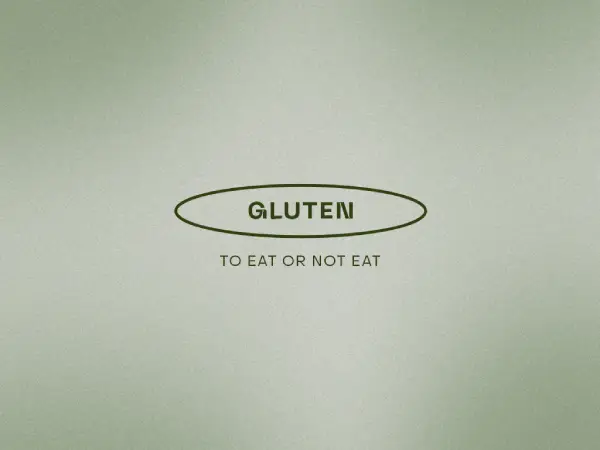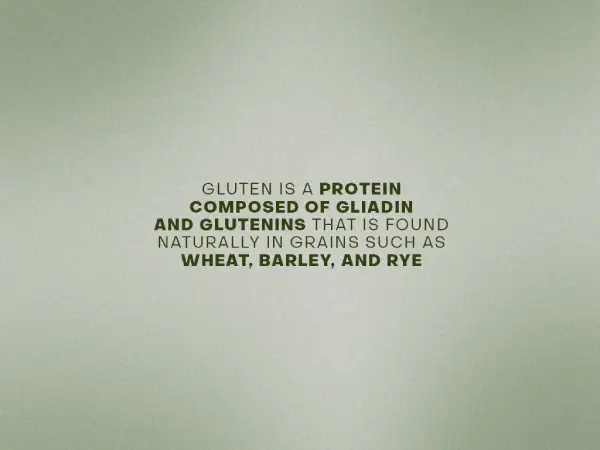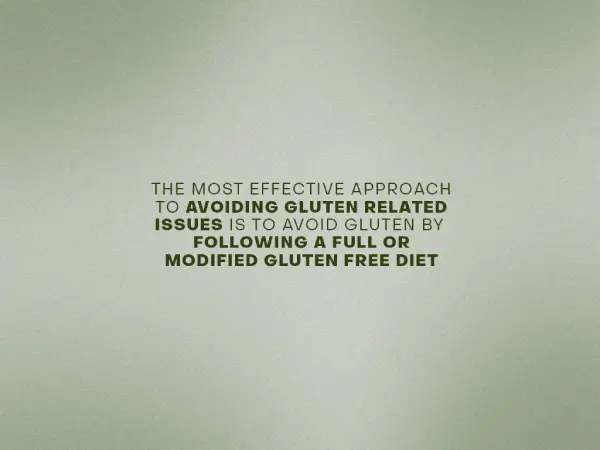Blog
Gluten – to eat or not to eat?

Gluten – do you really need to avoid it? With an incredible amount of information out there in the world of health and nutrition, much on the topic of gluten, it’s difficult to get a clear answer to this question. Gluten-free diets (GFD) have become increasingly popular and gluten-free (GF) products are now available at most grocery stores.
Interestingly, GFD’s are especially common among individuals without a gluten allergy, sensitivity, or disorder. Rather, individuals choose to eat a GFD as a “healthy” lifestyle choice. This blog will hopefully provide enough information for you to feel comfortable deciding whether the consumption of gluten is healthy for you.
What is gluten?
Gluten is a protein composed of gliadin and glutenins that is found naturally in grains such as wheat, barley, and rye. Sources of gluten include gluten-containing grains and any processed products made with or from these grains like breads, crackers, pastries, and pasta. Gluten is prized by chefs for its stretchy thickening nature, giving baked goods their soft chewy texture.
Gluten-related disorders
So, what’s the problem with this grain protein? Well, there are well-established gluten-related disorders including celiac disease and non-celiac gluten sensitivity (NCGS). Some individuals have a wheat allergy, although this is an allergic reaction to wheat rather than gluten itself (they can consume gluten-containing grains other than wheat).
Celiac disease
Celiac disease (CD) is an autoimmune disease triggered by gluten (specifically gliadin) ingestion in genetically predisposed individuals that damages the small intestinal lining and impairs nutrient absorption.
Signs and symptoms of celiac disease may include:
- Bloating
- Gas
- Constipation
- Diarrhea
- Fatty stools
- Headaches
- Joint pain
- Mouth sores
- Malnutrition
- Osteoporosis
- Mood disorders
- Infertility
- Failure to thrive
Note, some people with celiac disease may be asymptomatic.
Non-celiac gluten sensitivity
Non-celiac gluten sensitivity is a disorder triggered by gluten ingestion in the absence of celiac disease or wheat allergy that causes a wide variety of negative symptoms.
Signs and symptoms of non-celiac gluten sensitivity may include:
- Abdominal pain
- Bloating
- Diarrhea
- Constipation
- Fatigue
- Headache
- Brain fog
- Depression
- Leg and arm numbness
- Joint and muscle pain
- Anemia
- Skin rashes
Unfortunately, the prevalence of gluten-related disorders has increased sharply in recent years and there are several theories about why this could be, beyond the scope of this blog. Outside of gluten-related disorders, there is a significant amount of research that shows therapeutic benefit of a gluten-free diet for certain conditions including autism, irritable bowel syndrome, autoimmune disorders (e.g. Hashimoto’s disease), fibromyalgia, and depression.
Should you follow a gluten-free diet?
But what about individuals without celiac disease, non-celiac gluten sensitivity, or associated conditions? Gliadin, the primary component of gluten, has been shown to induce a transient increase in intestinal permeability (AKA leaky gut – learn more about that here) in all individuals regardless of whether or not they have celiac disease. This finding suggests that gluten may be an irritant for all people even if they do not experience symptoms.
However, this doesn’t necessarily mean that everyone should follow a GFD. Dr. Alessio Fasano, a world-renowned gastroenterologist and celiac expert, explains that although gluten ingestion may cause some extent of digestive damage and inflammation, this is a controlled reaction in most people, and as a result will not necessarily lead to intestinal problems or the development of gluten-related disorders.
Alright, should you eat gluten or not? As you can see, there really is no concrete answer. In our professional opinion: it is best to avoid gluten if you have or suspect a gluten-related disorder, have or suspect a condition that might be exacerbated by gluten ingestion, or experience negative symptoms from gluten ingestion. For all others, gluten-containing foods are likely best consumed in moderation and from high quality sources (organic, non-GMO).
Important considerations for following a gluten-free diet:
Not all gluten-free foods are healthy: just because a food is gluten-free does not make it healthier. In fact, many GF foods on the market are highly processed and lacking in essential nutrients. A GFD should be wholesome and balanced.
Gluten contamination is common: gluten is highly utilized in the food industry, which means many foods come into contact with it (oats for example). If you are following a strict GFD, it’s important to ensure food products are marked with an official GF label.
Gluten is hidden in numerous food products: gluten can sneak its way in if you aren’t careful. If you are following a strict GFD, it’s important to analyze food labels entirely to scan for any gluten-containing and cross-contaminated ingredients.
Here are some foods we bet you didn’t know contain gluten:
- Soy sauce
- Licorice
- Imitation crab meat
- Processed or prepared meat
- Salad dressing
- Spice and seasoning mixes
- Powdered drinks
- Pickles
- Certain medications and supplements
- French fries (via cross contamination)
Traveling and eating out can be challenging: maintaining a gluten-free diet can be extra tough outside of your home and on the road, especially in places where GF foods may not be accessible. For this reason, it’s important to have strategies put in place for these times.
Complete avoidance of gluten may be inevitable: sometimes due to limitations or accidents, we may not be able to follow through 100% with a GFD. Talk to your doctor about rescue remedies such as digestive enzymes specific for gluten breakdown.
Diagnosing gluten-related disorders by lab testing or an elimination diet can be done with one of our naturopathic doctors at LIVV. Our doctors specialize in implementing gluten-free diet’s and will be able to help troubleshoot all the potential obstacles listed above. Additionally, naturopathic doctors will design an individualized gut healing protocol to help heal any damage that’s been done – call today to book your appointment (619)840-6700 or visit the booking link at the top of the page.
Written by Jordan Valdez, RDN
References
Hollon J, Puppa EL, Greenwald B, Goldberg E, Guerrerio A, Fasano A. Effect of gliadin on permeability of intestinal biopsy explants from celiac disease patients and patients with non-celiac gluten sensitivity. Nutrients. 2015;7(3):1565-1576. Published 2015 Feb 27. doi:10.3390/nu7031565
Hechtman, Leah. “Advanced Clinical Naturopathic Medicine.” Amazon, Elsevier, 2020, www.amazon.com/Advanced-Clinical-Naturopathic-Medicine-Hechtman/dp/0729542653.


